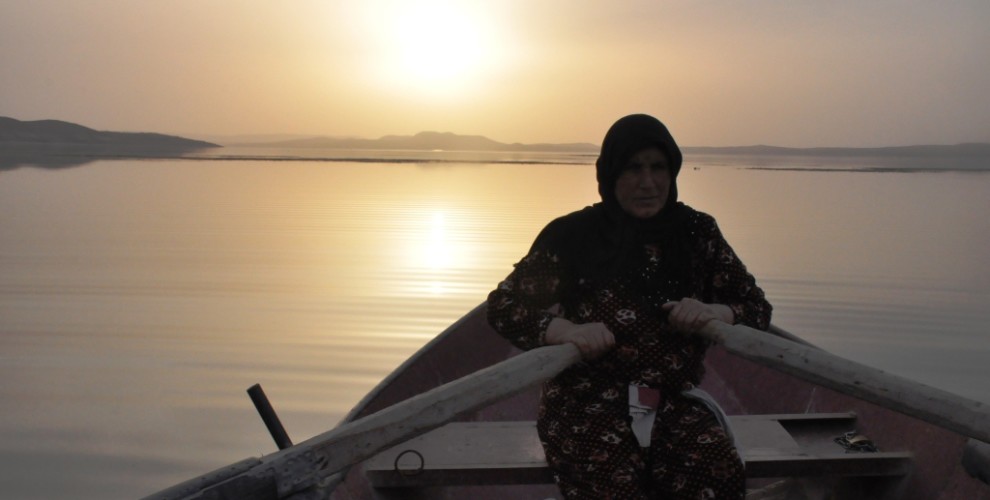A fisherwoman on the Euphrates
The sound of oars in the still waters of the Euphrates River tells the story of fisherwoman Eshme’s struggle in life.
The sound of oars in the still waters of the Euphrates River tells the story of fisherwoman Eshme’s struggle in life.

Al-Daba is a tiny village, covered in all shades of green, in Northern Syria, along the Euphrates River, on the border of Kobanê’s Shirîn town. The village is known as the village of the Emîrat clan, one of the biggest Arab clans in Northern Syria. The clan system is still very much strong in these lands.
Al-Daba is like many other villages, there are no high rise buildings, no asphalt roads, and one does not encounter that many cars. It has a glorious beauty with olive and pomegranate trees.
Because it lies along the Euphrates, fishing is one of the prominent means of living for the villagers. Fish sold to merchants here travel to markets in various cities.

When one hears “fishing” one thinks of “fishermen”, due to a social conditioning, as it is seen as yet another “men’s job”. But 50 years old Emshe Mihemed, whose children have left the country, has been working as a fisherwoman for 33 years.
The lines in Emshe Mihemed’s face are marks from beautiful and harsh memories of many years. She carries all her memories with her, and insists on fighting in this harsh life.

Emshe Mihemed sails out to the mysterious waters of the Euphrates every day along with her husband 63 years old Ehmed el-Selum.
Her 3 sons have left the country, and her daughters got married and left the house. Despite rheumatism in her feet, she continues to fish to make a living along with her husband.
After they walk home from the Euphrates, they sit by a small lamp in the evenings in their clay and stone house.

Emshe and her husband only have their boat, and one motorcycle. The old couple who continue their lives away from the spotlight want their children to have a good education and their village to have services, like everybody else.
With the break of dawn every day, Emshe and her husband sail out into the Euphrates and cast their nets. According to Emshe and her husband, there are fewer fish in the river now. They think this is caused by bad practices by other fishermen, like using explosives or electricity.

The village where this old couple lives was flooded when the Tishrin Dam was built, like many others along the river. Most of the villagers were forced to move when their lands were left underwater, but Emshe and her husband continue to live in their own village.
If one day you visit the Euphrates near Shirin, and you see a fisherwoman, now you know that her name is Emshe.